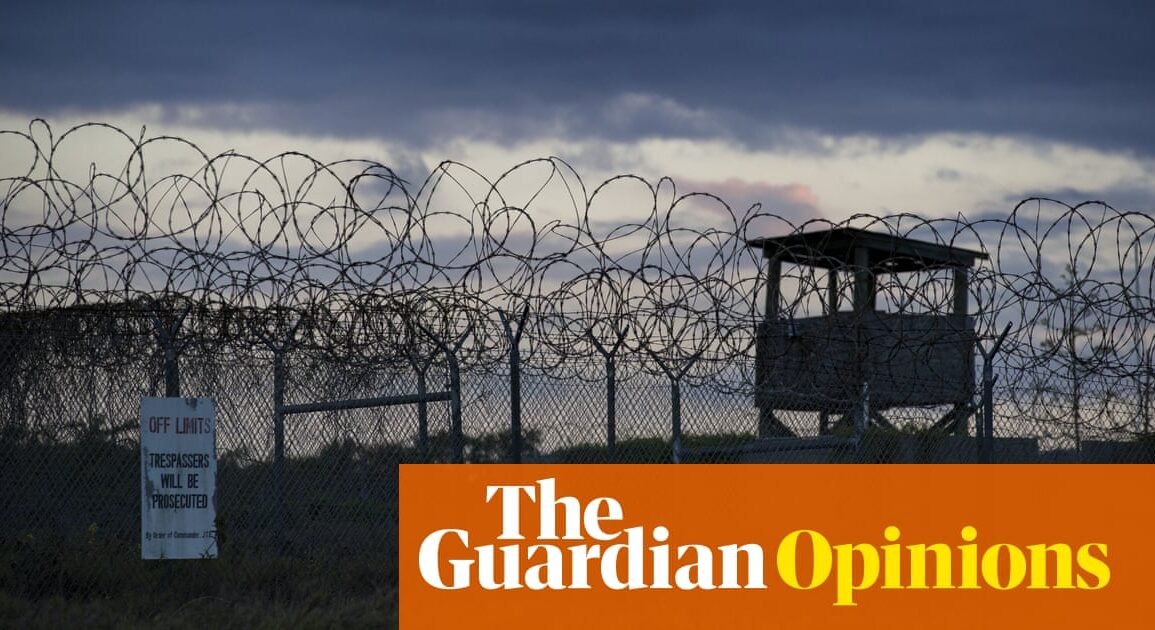
Sharqawi Al Hajj is a man detained at the US military prison in Guantánamo Bay, Cuba. I have been his lawyer for many years. This week marks 22 years since the prison was opened, and Sharqawi’s 20th year inside. He is one of 30 men still detained there, down from nearly 800 ever held. This trajectory is because Guantánamo, though not singular among prisons in its harsh treatment and arbitrary detention, was at least for a time very overt in its extremeness, and what could be seen more plainly than usual caused a reaction.
There are public records and images of an earlier period that people who are old enough remember. A news article from 2002, reporting on the first planeload of detainees arriving, sticks with me. Men chained to their seats for 8,000 miles were led off the plane because they wore goggles covered with black tape; some fell to the ground. A government report from 2008 described interrogations during those years, things like a man being found immobile on the floor of an interview room next to a pile of his own hair.
These accounts and many that followed led to a movement over the years. By the time of Barack Obama’s presidency, seven years after Guantánamo opened and 15 years ago looking back, the United States’ position was that the prison should be closed – within one year. The commander who set up the prison wrote an op-ed saying it should never have been opened. There was an international outcry, with the UN and the European parliament and countries around the world issuing condemnations.
So there are reasons for the emptying of this prison from hundreds to a few remaining, and for the long-standing position of the United States and the international community that it should be closed for good. The 30 men left are in a degraded, vacant complex. Guantánamo is a horrible relic of the past, with the 30 inside still bearing its legacy.
The steps needed for true closure are obvious, yet stuck. Like the majority of those still there, Sharqawi is cleared for release from Guantanamo. In 2021 a government board took the recommendations of prison authorities with other intelligence and determined that his continuing detention was no longer necessary for national security. His imprisonment drags on for other reasons, political and otherwise, all of which are beside the only point: that his detention today is unjustified, and this after two decades at Guantanamo.
In the time that Sharqawi has been held, his father passed, then his mother. He has gone through his 30s and most of his 40s. He was brutally treated before, which is lodged in him. That brutality, along with the deprivations that go with years of imprisonment, have been toxins for his body. He wonders what kind of future he has even if he is released.
I do not know what to tell him on this point, nor how to elevate his suffering to make it seen, in this time of many other extremes.
What seems most gratuitous here is that those closest to Guantánamo agree that it was a profound mistake, that most of those ever detained never should have been held at all, and that the majority of those still imprisoned after 22 years do not belong there now. In a sea of deep suffering, this is a place where there should be release.
-
Pardiss Kebriaei is Mr Sharqawi Al Hajj’s lawyer and has represented men at Guantánamo since 2007. She is a senior attorney at the Center for Constitutional Rights in New York
This post was originally published on this site be sure to check out more of their content.









